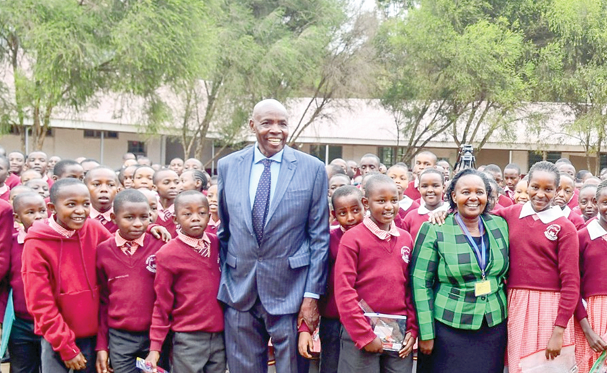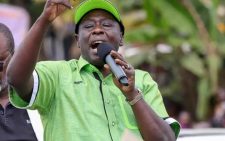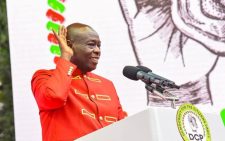Machogu: We’ll not raise schools fees

The government is not planning to increase school fees as learners join secondary school in January.
Education Cabinet Secretary Ezekiel Machogu yesterday dismissed reports of fee increment saying that it still remains as previously set.
He said learners in National and Extra-County schools will continue to pay Sh53,000 while fees for county schools still remain Sh45,000 per year.
“We assure Kenyans that the Government is not increasing fees when they go to Form One and all of them will be placed in Form One. We have enough places and there is no school fees increment … it is still Sh53,000 for National and Extra county schools and Sh45,000 for county schools and will remain as such,” said Machogu.
He was speaking at Kikuyu Township where they witnessed the start of the Mathematics paper, alongside President William Ruto.
The Kenya Secondary Schools Heads Association (KESSHA) has on several occasions urged the Government to review capitation for learners, coming against the backdrop of high cost of living.
As parents pay Sh53,000 for those joining Form One, the Government tops up the remainder of Sh22,244.
For other categories including County and Sub-County Schools, parents pay Sh40,535 while the government tops up with Sh22,244 for each learner to give an annual fee of Sh62,779.
For special needs schools, the government provides an enhanced capitation of Sh57,974 per learner, which includes a subsidy of Sh23,220 per learner for boarding equipment and stores and a top up grant of Sh12,510 per learner to cater for assistive devices and any additional personnel needed.
However, principals have decried late disbursement of funds and increased prices of commodities and even called for an increase of government capitation to about Sh30,000.
They also say that the situation is compounded by the fact that they are not allowed to send children home over school fees.
In one of their proposals, secondary principals stated that repairs, maintenance and improving among other key activities of the school require adequate resources but the vote head for this is underfunded.
Prime Cabinet Secretary Musalia Mudavadi separately assured that the government is looking into ways of increasing public primary and secondary schools to ease pressure on parents who cannot afford private schools fees.
Mudavadi said the number of public schools is far below what is expected to cater for the rising school going population.
“We need to look for ways of investing more in public schools across the country. When you look at the statistics, the public schools are very few, yet a lot of pressure is mounted on them to absorb numbers that they cannot manage,” Mudavadi who spoke from St George’s School where he helped supervise the exams said.
He, however, stated that the Government recognises the role private schools play to complement public education and there is need to strike a balance between them to help improve education standards.
“We appreciate the role being played by the private schools in the country. What we should be looking at is how to create that synergy between the public and the private sectors in education,” he said.
Mudavadi said the Stare takes education seriously and that the sector received immense support from budgetary allocation.
“The government injected up to Sh600 billion in the education sector in the 2023/2024 budget, being one of the highest allocation to a single sector in the recent past. This shows how serious the government is taking matters of education,” said Mudavadi.








